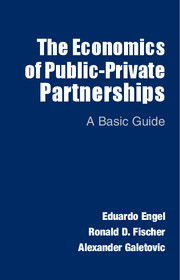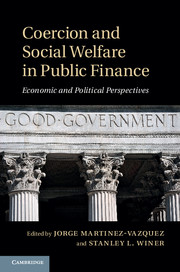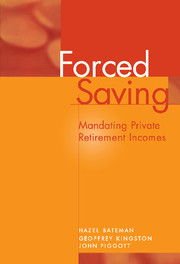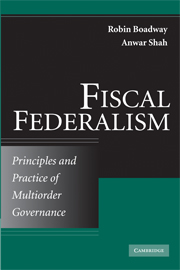The Economics of Public-Private Partnerships
A Basic Guide
$46.99 USD
- Authors:
- Eduardo Engel, Universidad de Chile
- Ronald D. Fischer, Universidad de Chile
- Alexander Galetovic, Universidad de Los Andes, Santiago, Chile
- Date Published: September 2014
- availability: This ISBN is for an eBook version which is distributed on our behalf by a third party.
- format: Adobe eBook Reader
- isbn: 9781316056325
Find out more about Cambridge eBooks
$
46.99 USD
Adobe eBook Reader
Other available formats:
Hardback, Paperback
Looking for an inspection copy?
This title is not currently available on inspection
-
Governments typically build and maintain public infrastructure, which they fund through taxes. But in the past twenty-five years, many developing and advanced economies have introduced public-private partnerships (PPPs), which bundle finance, construction, and operation into a long-term contract with a private firm. In this book, the authors provide a summary of what they believe are the main lessons learned from the interplay of experience and the academic literature on PPPs, addressing such key issues as when governments should choose a PPP instead of a conventional provision, how PPPs should be implemented, and the appropriate governance structures for PPPs. The authors argue that the fiscal impact of PPPs is similar to that of conventional provisions and that they do not liberate public funds. The case for PPPs rests on efficiency gains and service improvements, which often prove elusive. Indeed, pervasive renegotiations, faulty fiscal accounting, and poor governance threaten the PPP model.
Read more- A comprehensive guide to the economics of public-private partnerships which blends economics with practical experience
- Reviews the experience with PPPs around the world during the last twenty-five years
- Explains when and how PPPs should be used
- Provides specific recommendations to improve PPP programs
Reviews & endorsements
'It should surprise no one today that private provision of public services is no panacea, and this excellent book is a clear-eyed overview of the promises and pitfalls of public-private partnerships. It belongs on the shelf of anyone who cares about infrastructure, public-private partnerships, or indeed the very future of government itself. It is lucid and well written and filled to the brim with wisdom, insight, and far-ranging knowledge.' Edward Glaeser, Glimp Professor of Economics, Harvard University, Massachusetts
See more reviews'Who other than masters in the field could have given us a complete and committed view of recent advances in public-private partnership practices? Engel, Fischer and Galetovic have written a superb book that is not only full of feedback on real-world cases, but is also firmly grounded on a body of economic theory that explains or challenges those advances. Definitively, a must-read for both scholars and practitioners.' David Martimort, Directeur d'Etudes EHESS and Professor, Paris School of Economics
'For twenty years, the authors have been major contributors to the academic and public debate on public-private partnerships. They have now produced a summary of the knowledge accumulated by themselves and others that will prove indispensable for policy makers and scholars of the topic in years to come.' Stéphane Straub, Toulouse School of Economics
'This important book provides a very illuminating economic discussion of public-private partnerships. With its well-balanced mixture of practical case studies and economic analysis and coverage of many themes including incentives, governance, public and private finance, and renegotiations, I expect it will prove to be of great value to both policy makers and academics in the field.' Erik T. Verhoef, Vrije Universiteit, Amsterdam
'For almost twenty years now, Engel, Fischer and Galetovic have made us think about some of the most subtle dimensions of public-private partnerships through high-impact journal articles and stimulating presentations at conferences around the world. They have built on this and added their take on many of the most recent theoretical and policy developments in the field to deliver this impressive little book that teaches us even more subtle and valuable lessons. I cannot imagine anyone interested in the policy relevance of the academic research on public-private partnerships not wanting to read this book. Short, stimulating, subtle and incredibly relevant: a hard-to-beat combination!' Antonio Estache, Université Libre de Bruxelles, Belgium
Customer reviews
Not yet reviewed
Be the first to review
Review was not posted due to profanity
×Product details
- Date Published: September 2014
- format: Adobe eBook Reader
- isbn: 9781316056325
- contains: 12 b/w illus. 16 tables
- availability: This ISBN is for an eBook version which is distributed on our behalf by a third party.
Table of Contents
1. Introduction
2. Country studies
3. Highways
4. Incentives
5. Private finance
6. Public finance
7. Renegotiations
8. Governance
9. When and how to implement PPPs.
Sorry, this resource is locked
Please register or sign in to request access. If you are having problems accessing these resources please email [email protected]
Register Sign in» Proceed
You are now leaving the Cambridge University Press website. Your eBook purchase and download will be completed by our partner www.ebooks.com. Please see the permission section of the www.ebooks.com catalogue page for details of the print & copy limits on our eBooks.
Continue ×Are you sure you want to delete your account?
This cannot be undone.
Thank you for your feedback which will help us improve our service.
If you requested a response, we will make sure to get back to you shortly.
×






